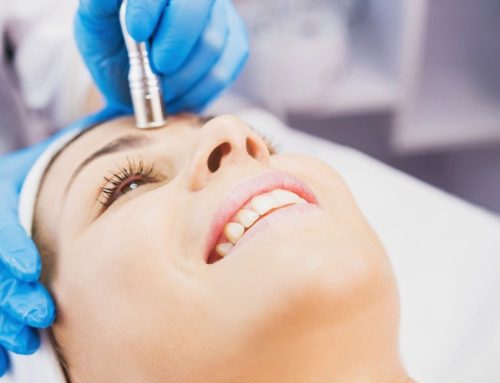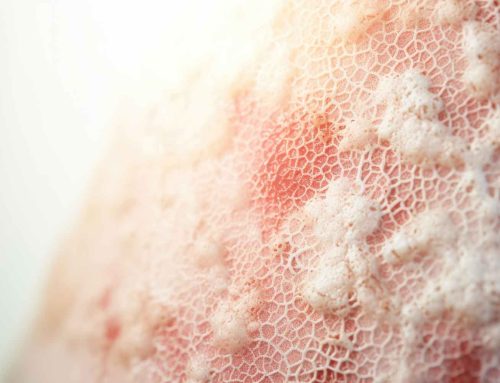The new year is here, and it’s the perfect time to focus on YOU. Women’s health and wellness in 2025 isn’t just about eating right and exercising (though those are key). Rosacea Awareness Month shines a spotlight on a condition affecting over 16 million Americans, yet many remain undiagnosed and untreated. This chronic skin condition can significantly impact daily life, causing not just physical symptoms but also emotional challenges for those affected.
Living with rosacea requires understanding, proper skin care, and appropriate treatment options. However, many people struggle to identify their symptoms or find effective management strategies. At Skin Care Physicians of Georgia, our expertise, along with recent advances in dermatology, makes it easier than ever to control rosacea symptoms and maintain clearer skin.
What is Rosacea?
Rosacea is a chronic inflammatory skin condition that primarily affects the central face, causing persistent redness and other visible symptoms. This often misunderstood condition impacts approximately 16 million Americans, yet many cases remain undiagnosed due to varying symptoms and manifestations.
Common Symptoms
The hallmark sign of rosacea is persistent facial redness, frequently described as resembling a sunburn that never fades. Unlike a temporary blush, this redness tends to linger, particularly across the nose, cheeks, forehead, and chin. As the condition progresses, additional symptoms typically emerge:
• Visible blood vessels – tiny red lines visible beneath the skin surface
• Inflammatory bumps – small red papules or pus-filled pustules resembling acne
• Burning sensations – many patients report stinging or burning feelings on affected skin
• Eye irritation – approximately 50% of rosacea patients experience ocular symptoms
• Skin thickening – particularly on the nose (rhinophyma), seen more commonly in advanced cases
For numerous individuals, rosacea follows a cyclical pattern marked by flare-ups and periods of remission. During flare-ups, symptoms worsen considerably, sometimes triggered by environmental factors, diet, or stress. Additionally, many people experience frequent flushing early in the disease progression, which may eventually develop into more persistent symptoms.
Types of Rosacea
Medical experts recognize four distinct subtypes of rosacea, each with unique characteristics:
1. Erythematotelangiectatic Rosacea (ETR): Characterized by persistent facial redness, flushing, and visible blood vessels. This represents the most common subtype.
2. Papulopustular Rosacea: Presents with acne-like breakouts alongside redness, sometimes mistaken for adult acne.
3. Phymatous Rosacea: Results in skin thickening and tissue buildup, most noticeably affecting the nose (rhinophyma). This less common subtype.
4. Ocular Rosacea: Involves eye symptoms including redness, dryness, burning sensations, and a gritty feeling. This form can lead to serious complications if left untreated.
Interestingly, some individuals may experience multiple subtypes simultaneously, further complicating diagnosis and treatment approaches.
Managing Rosacea
Successful management of rosacea requires a multi-faceted approach that addresses both the physical symptoms and their triggers. While there’s no cure for this chronic condition, proper skincare, lifestyle adjustments, and appropriate treatments can effectively control symptoms and prevent progression.
Skincare Tips
A gentle skincare routine forms the cornerstone of rosacea management. When selecting products, look for those labeled “fragrance-free” rather than simply “unscented.” Furthermore, avoid products containing common irritants such as:
* Alcohol
* Camphor
* Fragrance
* Glycolic acid
* Lactic acid
* Menthol
* Sodium lauryl sulfate
* Urea
Moisturizing after cleansing is essential regardless of whether your skin tends toward dryness or oiliness. Sun protection remains particularly crucial, as sun exposure triggers rosacea flare-ups in a majority of patients. Choose broad-spectrum sunscreens (minimum SPF 30) containing titanium dioxide or zinc oxide, which typically cause less irritation.
How Skin Care Physicians of Georgia Can Help
At Skin Care Physicians of Georgia, personalized care forms the foundation of effective rosacea management. Our board-certified dermatologists provide comprehensive solutions tailored to each patient’s unique symptoms and triggers. Our approach has helped countless patients regain confidence and control over their skin health.
We prioritize individualized treatment plans for every rosacea patient. We begin with a thorough examination to determine the specific subtype and severity of your condition, followed by a customized care plan.
This patient-centered approach extends beyond symptom management. Our team works closely with patients to develop sustainable skincare routines and lifestyle adjustments that support long-term skin health.






